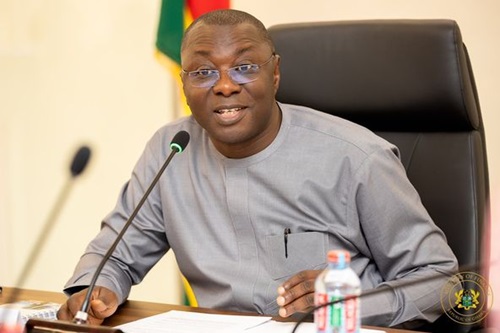
Ghana's economic reforms show progress - IMF
The International Monetary Fund (IMF) has given Ghana a positive thumbs-up after approving a disbursement of around $360 million following a successful review of the country's economic reform programme.
This news comes after Ghana's government implemented a series of measures aimed at tackling economic challenges faced in 2022. The IMF-backed programme focuses on restoring stability and reducing debt while laying the groundwork for future growth.
However, the IMF cautioned that maintaining the current pace of reforms is crucial. It said upcoming elections in December could pose a risk of policy slippages, so staying committed to fiscal consolidation remains important.
Positive signs
The IMF, in a press release, highlighted Ghana's strong performance, stating that all key targets for the second program review were met. It said inflation, a major concern last year, has fallen significantly, while the government's fiscal position and external finances have improved.
However, it cautioned that although the medium-term outlook remains favourable, it is subject to downside risks, including those related to the upcoming general elections.
"Ghana's economic reform program is delivering on its objectives," the release said.
"Following acute economic and financial pressures in 2022, the Fund-supported program has provided a credible anchor for the government to adjust macroeconomic policies and implement reforms to restore macroeconomic stability and debt sustainability while laying the foundations for higher and more inclusive growth. These efforts are paying off, with growth proving more resilient than initially expected, inflation declining at a faster pace, and the fiscal and external positions improving.
"Ghana’s performance under the IMF-supported program has been generally strong. All quantitative performance criteria for the second review and almost all indicative targets were met. Good progress has also been made on the key structural reform milestones, despite some delays."
Debt restructuring
A key aspect of the programme is a comprehensive debt restructuring plan, and the fund commended Ghana for reaching agreements with both its official creditors and private bondholders, easing concerns about debt sustainability.
Looking ahead, the focus will shift towards creating a business-friendly environment to attract private sector investment. This, coupled with continued reforms in governance and transparency, is seen as essential for boosting long-term economic growth and reducing poverty.
IMF Deputy Managing Director Kenji Okamura said: "Ghana’s performance under its ECF-supported reform program has been generally strong. The authorities’ strategy aimed at restoring macroeconomic stability and reducing debt vulnerabilities is paying off, with clear signs of stabilization emerging. Going forward, perseverance in macroeconomic policy adjustment and reforms is essential to fully restore macroeconomic stability and debt sustainability, while fostering a sustainable increase in economic growth and poverty reduction".
The IMF emphasized the need for continued fiscal discipline, particularly in the lead-up to the elections. Additionally, it said maintaining a tight monetary policy and strengthening the financial sector will be critical for Ghana's economic well-being.